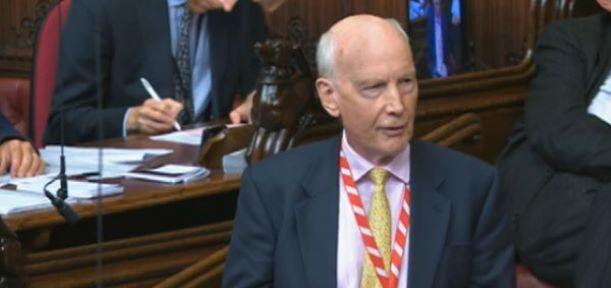
Submitted by Dee Dee Frawley on Wed, 07/05/2025 - 16:20
The UK risks missing a real opportunity to drive economic growth in the UK and to build up our research base in science and technology unless urgent reforms are made to its visa and immigration policies for science, technology, engineering and mathematics (STEM) talent, the Chair of the House of Lords Science and Technology Committee has stated in a powerful letter to the Prime Minister and key Cabinet ministers.
Professor Lord Robert Mair, a leading engineer and founding head of the Cambridge Centre for Smart Infrastructure and Construction, delivered the message in a letter dated May 6 to the Prime Minister, Chancellor, Home Secretary, and Minister for Science, Innovation and Technology. The letter urges the Government to “rectify the situation where it is putting up unnecessarily high barriers to the global talent that want to live and work here, harming the national interest and in stark contrast to the actions of other nations.” Citing intensifying global competition and sweeping changes in US science policy, Lord Mair argued that the UK must seize the moment to attract top international researchers disillusioned by political instability and funding cuts.
His letter comes amid reports that the Government is preparing to launch a new scheme to attract global research talent. While welcoming the move, Lord Mair stressed that it must not be narrowly targeted and must be supported by “funding commensurate to the scale of the opportunity.” Without addressing high visa costs and burdensome immigration procedures, he warned, the scheme risks being ineffective.
The Committee’s concerns follow its previous letter in January, which branded the UK’s current immigration system for STEM talent as “an act of national self-harm.” The issue has become more pressing, Lord Mair wrote, with the current US administration’s proposed 40% cut to the US National Institutes of Health budget and politically motivated terminations of National Science Foundation grants. These developments are driving world-leading researchers to look for opportunities elsewhere.
“This is a massive opportunity for the UK,” said Sir John Bell, the eminent life sciences expert, in evidence to the Committee. “The best people in the best universities in America… are all saying, ‘When can we move?’”
Echoing this urgency, Nobel Laureate Sir Paul Nurse described the moment as a chance for the UK to "put science at the centre of [the] agenda and shout about it from the rooftops.”
Lord Mair also noted that other countries are already acting decisively. France, Germany, Canada, and Australia have all announced new visa schemes to attract global talent. The EU recently unveiled a €500 million initiative to bring in top global scientists—a move that contrasts sharply with the UK’s perceived “flat-footedness.”
Despite public support for skilled migration, the number of visas granted for science and engineering roles in the UK dropped by a third in the second half of 2024 compared to the previous year. Lord Mair pointed out that the highly selective Global Talent visa accounts for less than 1% of total immigration and is therefore not at odds with the Government’s pledge to reduce net migration.
He concluded with a clear message: “The opportunity to strengthen the UK’s scientific and technological capacity needs to be taken urgently.”
The letter has been copied to key government departments and parliamentary committees and is expected to add significant pressure ahead of the publication of the Government’s Immigration White Paper, expected imminently.
